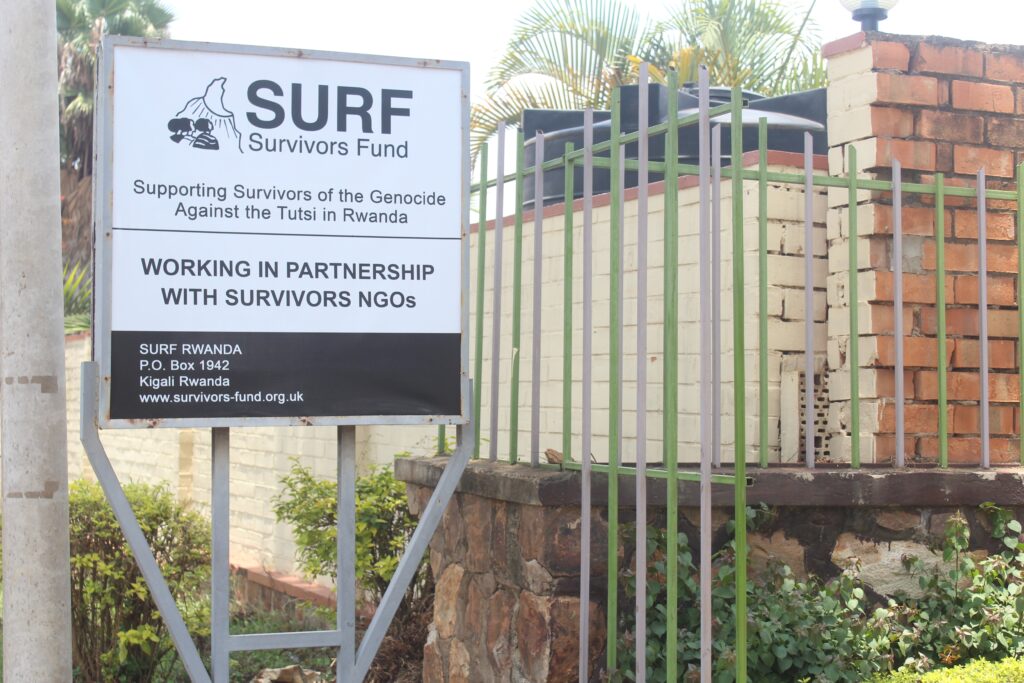
This is one of a series of extracts of questions and answers from An interview with Samuel Munderere and David Russell of Survivors Fund (SURF) on reparative justice for survivors of the 1994 Genocide against the Tutsi in Rwanda published in a Special Issue of Peace Review, a journal of social justice, to mark the 30th Anniversary of the Genocide against the Tutsi in Rwanda.
What are the key areas of social and economic rights and welfare from which genocide survivors in Rwanda lack sufficient provision, i.e. healthcare, housing, education, job training, sufficient economic resources not to live in poverty? How has SURF responded to these unfulfilled rights and needs?
Genocide survivors in Rwanda continue to face significant challenges in accessing key areas of social and economic rights and welfare. Healthcare remains a critical concern, with survivors often lacking access to adequate medical services, in particular mental health support to address the trauma resulting from the genocide. Housing is another pressing issue, with many survivors living in inadequate or unstable conditions, lacking secure tenure and basic amenities. Education is still a challenge, as survivors struggle to afford the further education required for livelihood opportunities, as well as the funding required to secure an education for their children. Job training and economic resources are essential for survivors to achieve self-sufficiency and escape poverty, yet many lack access to skills training, employment opportunities, and sufficient financial resources to support themselves and their families.
Survivors Fund (SURF) has responded to these unfulfilled rights and needs through a range of programmes and initiatives. SURF provides healthcare support to survivors through partnerships with health facilities, offering medical consultations, treatment, and psychosocial support services. In the area of housing, SURF has supported housing projects, including the construction of new housing, and renovation of existing housing, for vulnerable survivors and advocacy for secure land tenure rights for young survivors in particular – which is made possible through our Legal and Counselling Helpline.
SURF also facilitates access to education for survivors through scholarships, school fees assistance, and support for vocational training programs. This support also extends to second-generation survivors and has been a particular focus in recent years for young people born to women survivors of genocide rape through our partnership with Foundation Rwanda.
Additionally, SURF implements economic empowerment initiatives, such as small business support, entrepreneurship, and income-generating activities, to help survivors build sustainable livelihoods and improve their economic well-being. Through these efforts, SURF seeks to address the multifaceted needs of genocide survivors and promote their social and economic rights and welfare.
